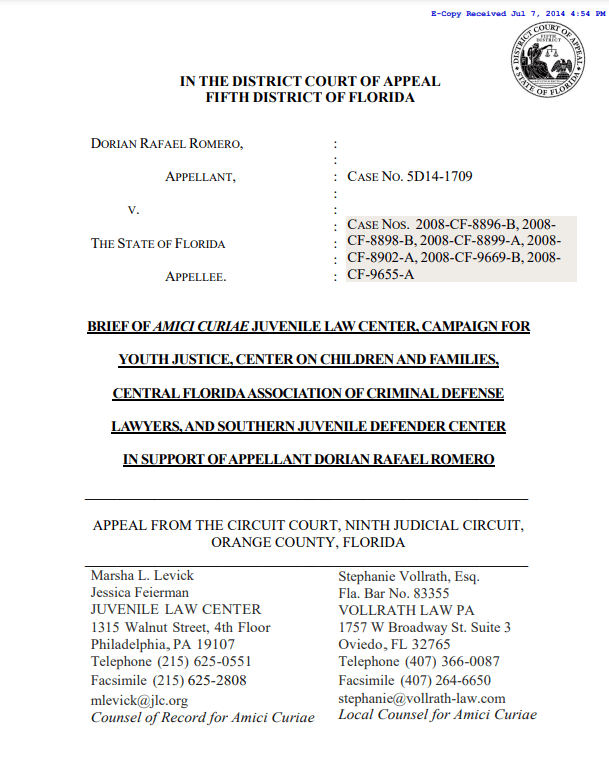
Summary of Argument
The jurisdictional limitations set forth in Florida Rule of Criminal Procedure 3.850(b) must be tolled when an incarcerated individual lacks access to the courts. Demps v. State, 696 So. 2d 1296 (Fla. 3d DCA 1997). The United States Supreme Court has made clear that access to the courts does not depend on an individual methodology, such as the provision of a law library. Lewis v. Casey, 518 U.S. 343, 351 (1996). Rather, the access must be tailored to confer upon the individual the capability of challenging his or her sentence or conditions. Id. at 355.
The Supreme Court has recognized, in a wide array of legal contexts, that adolescents are different than adults. Adolescents are not as culpable as adults. Miller v. Alabama, 132 S.Ct. 2455 (2012); Graham v. Florida, 560 U.S. 48 (2010); Roper v. Simmons, 543 U.S. 551 (2005). They deserve different protections than adults. J.D.B. v North Carolina, 131 S.Ct. 2394 (2011). Most importantly, they cannot be expected to comply precisely with procedural expectations created for adults Id. .
Social science research further supports these findings, demonstrating that adolescents have neither the legal experience nor the cognitive capabilities to access the courts without significant adult support and guidance from counsel. See, e.g., Elizabeth S. Scott & Thomas Grisso, The Evolution of Adolescence: A Developmental Perspective on Juvenile Justice Reform, 88 J. CRIM. L. & CRIMINOLOGY 137, 169-70 (1997). Access to the courts for adolescents therefore requires the support of an adult legal advocate.
Because Dorian Romero was an adolescent with no attorney, no other adult tasked with advocating for him, and had not even been informed by his own attorney that he had a right to appeal, he lacked adequate access to the courts. The jurisdictional limitations should therefore be tolled during the period of his minority.